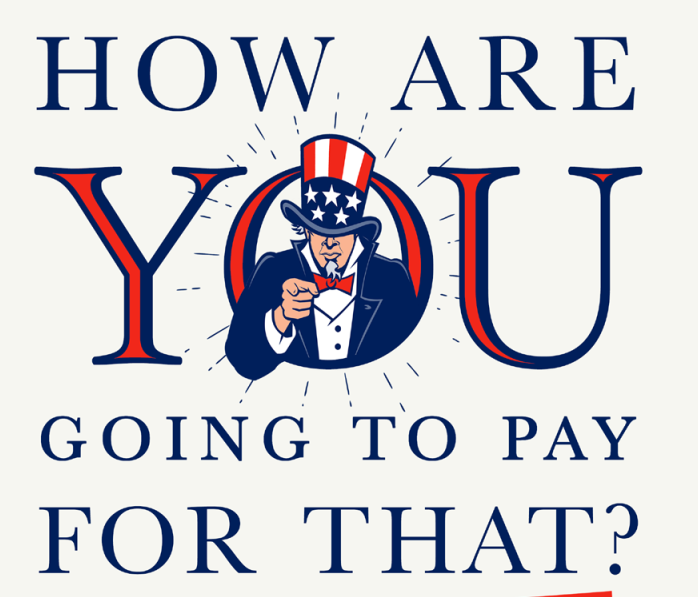I Can't Win for Losing

I have some unfortunate news on the book front. It turns out that there are severe materials and staffing problems at the printing company that assembles the physical books for my publisher, and as a result the publication of How Are You Going to Pay for That? is being pushed back to January 25 next year. I apologize to anyone who pre-ordered the book, especially if it was in anticipation of devouring the whole thing on September 14 like how I stayed up until 4 AM reading the fourth Harry Potter back in (dear God) the year 2000. If you just can't wait until then let me know and I can alleviate your suffering.
That raises the question, I suppose, of what to do with this newsletter thing for the next half a year. My conclusion is that I should keep it going – the RSS feeds at The Week are still not fixed, and besides I enjoy the blog format more than writing columns. Again, if you've got some spare coin and wouldn't mind helping me pay for independent journalism, I would much appreciate subscribing. (And if you've got ideas for convenient ways to support what I'm up to here, I am all ears.)
So here's what I wrote last week. First, the dog shit American health care system is an underrated reason the pandemic is still raging in this country:
A great many medical providers view the uninsured like a hungry vulture looking at a wounded puppy. Just a few examples out of thousands: one study found that the worst-behaved hospitals charged uninsured people 10 times the cost of care; corrupt providers have reportedly tried to steal people's car accident settlements, deliberately put themselves out of insurance networks so they can bilk the sick out of tens of thousands of dollars, turned ambulance services into extortion rackets, and on and on. Millions and millions of Americans have learned the hard way that going to the doctor for any reason can easily lead to shattering financial burdens.
Second, it turns out that giving people money – shocker!! – cures their shortage of money:
[It] turns out people like getting free money! The survival checks, in particular, got about three-quarters approval in several polls. Leah Burgess, a part-time chaplain and student in D.C., told DeParle: "If our resources in a pandemic could change millions of people's lives, then what's stopping us from continuing to do that?" The answer is nothing but politics. Free money is great, and all Americans — not just the poor — should be demanding more of it at all times.
Third, I discuss how a rational small-d democratic force would respond to the January 6 putsch:
It follows that there are two main strategies for protecting the American state from another putsch. First, root out right-wing extremists from law enforcement and the military, and ensure that both leaders and the rank-and-file are people who can be relied upon to defend democracy (instead of beating up Black Lives Matter activists) if it comes to that. Second, mobilize the Democratic base for possible mass counter-protests. If the Capitol Police and D.C. cops had been sufficiently prepared on Jan. 6, and had united in sympathy with a mass of several hundred thousand peaceful counter-protesters protecting the Capitol with the sheer weight of numbers, the Trumper mob never would have made it inside the building.
Fourth, I discuss the stupendous quantity of greenhouse gas emissions created by China:
[Most] importantly, the sheer scale of China's emissions dwarfs all other factors. It now emits more greenhouse gases than the U.S. and the EU combined — indeed, a recent report from the Rhodium Group found that in 2019, China emitted more than all developed countries put together. It is true that rich countries are partly responsible for Chinese emissions because they buy so many exports from that country, but the effect is relatively modest. Adjusting for trade effects only increases American emissions by about 6.3 percent, and decreases those of China by about 10 percent.
Fifth, on the looming crisis of Biden slashing unemployment benefits:
In a bleak irony, it turns out cutting off super-unemployment did nothing to get people into jobs. Data from economist Arin Dube shows that the states that did so actually saw a decrease in the share of adults with jobs, while those that kept the benefit saw an increase. Trying to bludgeon the working class into jobs accomplished the exact opposite.
Finally, don't miss my free post on here about January 6, and my last podcast episode about climate disasters and Kim Stanley Robinson's recent book The Ministry for the Future.
See you soon!